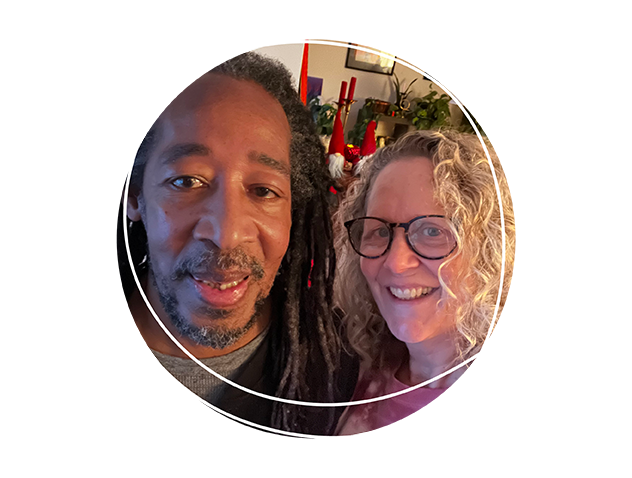
Faces of dementia: Heather and Curt's story
Curt lives with young onset Alzheimer’s disease in BC. Here, Heather, his wife of 33 years, relates part of their journey.
"I’m 61 and my husband, Curt, is 64. Around 2008 or 2009, Curt had a head injury at work. Some of [what I now see as dementia-related] behaviour started then. We’d just bought my mom’s place on an island, and he was excited about us having this place and working full-time and working towards us being there and fixing it up. But after that head injury, he got weird about work and going to work. And he also started having delusions regarding me.
I kept trusting that his family doctor at the time was taking care of everything. I remember being confused; I thought, how does somebody suddenly get what looks like mental health issues? And then the symptoms stopped suddenly. I remember talking to my family doctor and asking, “How does that just stop without treatment?” She said the problem had just been temporary. But now, looking back, I think, Why didn’t anyone think about dementia? He even saw a neurologist back then. They should have looked into it right away based on his age and head injury.
In 2021, Curt was diagnosed with young onset Alzheimer’s disease. One thing I’ve really become aware of through all this is how uncomfortable people are about this condition. People just avoid talking about it. Especially as his symptoms get worse. Why? Because no one talks about it, because no one hears about it. So I honestly am going to make it my mission to be very vocal about this.
I often say, “I have every emotion you can possibly have every day.”
In terms of our age, there’s just nothing out there for us. Even when I was able to go to caregiver support groups, I was the youngest one there. People would say, “Oh, you remind me of my daughter.” I never found anyone like me, except online.
Last year Curt was in a program that was set up for a lot of physical activity, and it didn’t work out for him. It was also expensive.
"One thing I’ve really become aware of through all this is how uncomfortable people are about this condition. People just avoid talking about it. I honestly am going to make it my mission to be very vocal about this."
Now he goes to another program three hours a day twice a week. I drop him off on the way to work, and pick up after. There, most of the people are quite elderly and less mobile than he is.
Most workdays, I work a few hours at the office and then go home to work from home. If there’s no program going on, my son is with Curt when I’m at work. And our son is so patient—but I know it’s taken a toll on him too.
Financially, I had to sell the property that we were planning on keeping to pay off debt. The program he goes to is $10 a day for the program, but I have to park every time I take him. So that alone is now $200 a month for him to go two days [a week] to the program. One day I’ll have to pay for the home care, too.
I’m working, but I’m not eating well, I’m not taking care of myself. I think, Should I go part-time? But then it will be financially harder, I might not be able to keep the car. We have his Canada Pension Plan Disability payments, but how does that roll into taxes? There’s a lot of information I wish someone had just told me from the get-go.
There’s just this constant adapting throughout the day. Learning to live a new way with this person, but also still remembering all the old ways. There’s so much that I’m going through. And always just trying to find that happy place, wherever I can.”
Photo: Courtesy of Curt and Heather Sosa.
